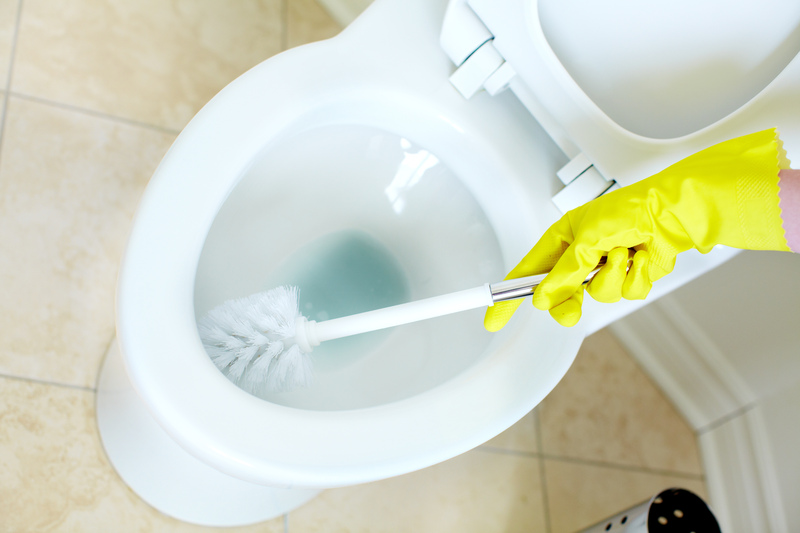Ultimate Bathroom Shine with Vinegar
Posted on 23/12/2024
Cleaning the bathroom can be one of the most daunting household chores, but it doesn't have to be. A secret weapon hiding in your kitchen pantry can make this job easier, more efficient, and less chemical-laden. This magical ingredient is none other than vinegar. Utilizing vinegar for bathroom cleaning can transform your space into a sparkling sanctuary while ensuring a healthier environment for you and your family. Let's dive into how you can achieve the ultimate bathroom shine with vinegar.
The Science Behind Vinegar
Vinegar, produced through the fermentation of ethanol by acetic acid bacteria, is an acidic solution known for its cleaning properties. The primary component of vinegar is acetic acid, typically around 5-8% concentration. This acidic nature allows vinegar to break down mineral deposits, cut through grease, and dissolve grime. Furthermore, its antibacterial properties can help eliminate bacteria and viruses, making it an effective natural disinfectant.

Why Choose Vinegar for Bathroom Cleaning?
The bathroom is a hotspot for moisture and bacteria, but traditional cleaning products often contain harsh chemicals that can pose risks to health and the environment. Vinegar offers a safe, non-toxic alternative capable of tackling various types of grime found in bathrooms, including soap scum, hard water stains, and mold. Additionally, vinegar is eco-friendly and cost-effective, making it an appealing choice for conscientious consumers.
Preparation: Gathering Supplies
Before diving into the cleaning process, gather the following supplies:
- White distilled vinegar
- Spray bottles
- Baking soda
- Microfiber cloths or sponges
- Scrub brush
- Essential oils (optional)
Having these items on hand ensures you're fully equipped to tackle every area of the bathroom.
Step-by-Step Guide to a Sparkling Bathroom
Tackling the Shower and Bathtub
Showers and bathtubs can accumulate soap scum, hard water stains, and mildew. Vinegar's acidic nature is perfect for dissolving these unsightly residues:
- Mix: Create a solution of equal parts white distilled vinegar and water in a spray bottle.
- Spray: Generously spray the solution onto the surface of the shower or bathtub.
- Soak: Allow the solution to sit for 15-20 minutes to break down grime and stains.
- Scrub: Using a scrub brush or sponge, scrub away the loosened residue.
- Rinse: Rinse thoroughly with warm water to remove any remaining vinegar solution.
Revamping the Sink and Faucet
Sinks and faucets often suffer from soap residue and hard water deposits. Vinegar can efficiently remove these residues:
- Spray: Spray a 1:1 vinegar and water solution onto the sink and faucet.
- Wipe: Wipe down with a microfiber cloth or sponge.
- Scrub: Use an old toothbrush dipped in vinegar to scrub around nooks and crannies for detailed cleaning.
- Rinse: Rinse with water and dry with a clean cloth.
Cleaning the Toilet
The toilet bowl can be a breeding ground for bacteria and stubborn stains. Here's how vinegar can help:
- Pour: Pour 1-2 cups of white distilled vinegar into the toilet bowl.
- Sit: Let it sit for at least 2-3 hours, or overnight for tough stains.
- Scrub: Scrub the bowl with a toilet brush to remove stains and disinfect.
- Flush: Flush to rinse away the vinegar solution.
Refreshing Mirrors and Glass
Vinegar is excellent for leaving mirrors and glass surfaces streak-free and gleaming:
- Spray: Mix a 1:1 solution of vinegar and water and spray onto the glass surface.
- Wipe: Wipe down using a microfiber cloth, moving in circular or 'S' motions to avoid streaks
- Buff: For an extra shine, buff the glass with a dry microfiber cloth.
Additional Tips and Tricks
Dealing with Unpleasant Odors
Baking soda and vinegar work well together to neutralize odors. Sprinkling baking soda in areas prone to smells (such as the drain) and following up with vinegar can help freshen these spots.
Removing Mold and Mildew
Mold and mildew are more resistant than regular grime. For these, mix a stronger vinegar solution (2/3 vinegar to 1/3 water) and apply it to the affected areas. Allow it to sit for at least an hour before scrubbing.
Adding Essential Oils
If you find the smell of vinegar too strong, adding a few drops of essential oils (like lavender, tea tree, or lemon) can mask the odor while providing additional antimicrobial properties.

Precautions When Using Vinegar
While vinegar is a versatile cleaner, it's important to note a few precautions:
- Avoid using vinegar on natural stone surfaces such as granite or marble, as its acidity can damage these materials.
- Conduct a patch test on any new surfaces to ensure they are not adversely affected by vinegar.
- Always use white distilled vinegar for cleaning purposes; other types of vinegar, like apple cider vinegar, can stain surfaces.
Conclusion
Using vinegar for bathroom cleaning offers a multitude of benefits, from cutting through tough grime to providing a natural, non-toxic alternative to chemical cleaners. With the proper techniques and tools, you can achieve a gleaming bathroom that not only looks clean but is also free from harsh chemicals. Embrace the power of vinegar, and elevate your cleaning routine to attain the ultimate bathroom shine.
Latest Posts
Uncovering the Benefits of Hot Water Extraction
Save Time on Bathroom Cleaning Chores
Quick House Clean in 30 Minutes








